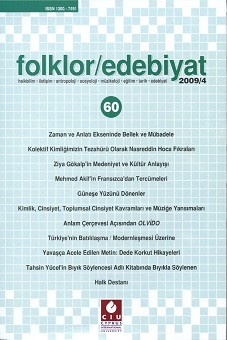Forster'in Kadinlari: Howards End, A Room with a View ve Where Angels Fear to Tread
Forster's Women: Howards End, A Room with a View and Where Angels Fear to Tread
Author(s): Özlem GörümlüSubject(s): Gender Studies, Studies of Literature, Novel, Individual Psychology, Social psychology and group interaction, Social differentiation, Social Norms / Social Control
Published by: Uluslararası Kıbrıs Üniversitesi
Keywords: Edwardian period; Bloomsbury; conflict; Individual; identity;
Summary/Abstract: In 1901, during his fourth and final year at Cambridge University, the Cambridge Conversazione Society, in formally known as „The Apostles“, elected into the membership. The Apostoles under the direction of G. E. Moore, where is specially renowned for their lively discussions about humanism. First, Moore emphasizes close personal relationships between individuals, regardless of their respective economic or social classes. Second Moore argues that love should be "the aim of life". He asserts that awareness of struggle bonds connecting individuals with lead to future reconciliation between members of different genders and social classes. These ideas of the Apostols were later adopted by the Bloomsbury Group. Bloomsbury held personal relations to be the highest good relations between people who were equal yet unique, regardless of gender. Bloomsbury believed in the value of individual attempts to lead a good moral life. Yet Forster main things that personal relations were often concealed by hierarchic social system, such as the one established in Edwardian England. Thus, Forster's novels are essentially concerned with personal conflicts, arriving from the challenging or questioning of a set of established social values, usually values associated with the English middle class in its attitude towards it's supposed social inferiors. Women of the upper middle class for instance where to act submissively the word man and devoted themselves to their families, while men of the same economic class were to idealize women. So the objective of this article is to examine the struggle of the women characters in his novels. In a room with a view, Lucy's mature ration into a person who comes to rely upon her own instincts rather than what society dictates as morally correct can particularly be observed. In Where Angels Fear to Trad, Lilia and Caroline have been suppressed to represent the features of the ideal women who do conform to social expectations rather than express the desire or aspirations of their own in ceder to be recognized as real identities.
Journal: Folklor/Edebiyat
- Issue Year: 15/2009
- Issue No: 60
- Page Range: 225-234
- Page Count: 10
- Language: Turkish

